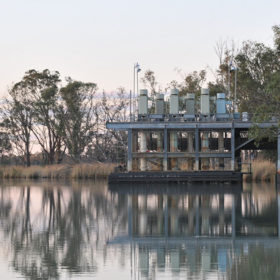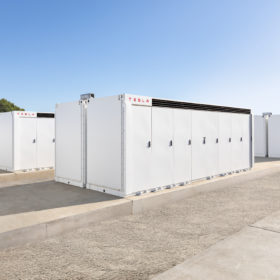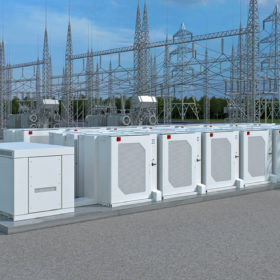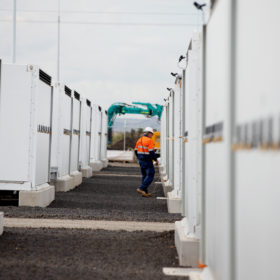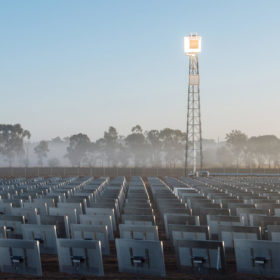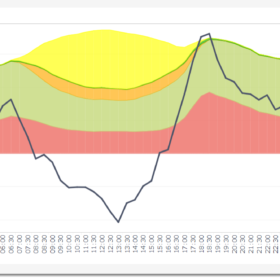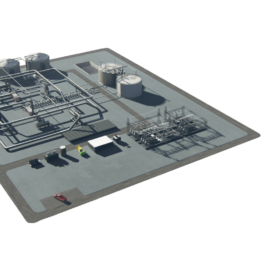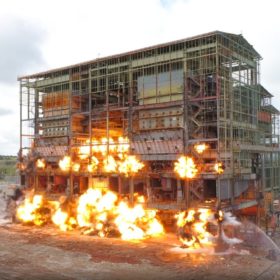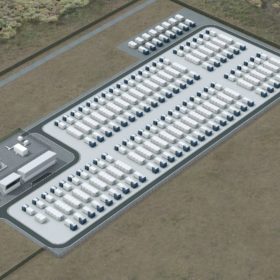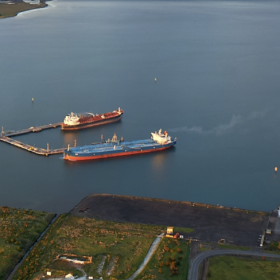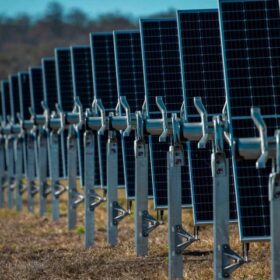Enel X unveils first Australian battery storage project
The energy transition and innovation arm of Italian energy company Enel Group is set deliver its first battery energy storage system in Australia, a “landmark project” which it said will help South Australian water utility Central Irrigation Trust “intelligently manage” its energy use.
Tesla signs offtake deal with Genex for Bouldercombe battery
Australian renewable energy developer Genex Power has penned an offtake agreement with Tesla that will smooth the way for it to secure finance for the 50 MW/100 MWh Bouldercombe Battery Project being developed near Rockhampton in central Queensland.
5-minute settlement, battery smarts make Hazelwood battery a reality
The impression of another big battery being installed on the site of one of Australia’s recently decommissioned “coal clunkers” was lost on few. Battery system provider Fluence says the Hazelwood Battery Energy Storage System’s business case was bolstered by recent reforms and new technology to take advantage of rapidly changing wholesale electricity market dynamics.
Australia’s new biggest battery switches on
The 300 MW / 450 MWh Victorian big battery in Geelong has today commenced operation. In spite of fire breaking out during commissioning in July, the battery has been delivered in record time, taking less than a year to build and begin operations.
New tank design promises to significantly improve the reliability of thermal energy storage
A consortium including Australian concentrated solar thermal power company Vast Solar has filed to patent a new tank design for thermal energy storage systems. The new design, it says, substantially mitigates the risk of tank failures which have been identified as one of the key shortcomings of the economical storage technology.
SA batteries paid to charge as solar sends electricity prices negative
Batteries in South Australia have been paid to charge throughout September and October 2021 due to a record number of negative price intervals. Wholesale electricity prices were negative almost 40% of the time.
Partnership formed for molten salt long duration energy storage
Malta announced a partnership with Betchel to deploy electro-thermal energy storage systems that are capable of durations of 10-150+ hours.
Engie begins construction of 150 MW big battery at Hazelwood site
The transformation of the former Hazelwood coal-fired power station in Victoria has commenced with French renewables giant Engie announcing work has begun on a 150 MW/150 MWh battery energy storage system which is being constructed at the site.
Grid-forming big battery breaks ground in South Australia
AGL has “broken ground” at Torrens Island power station in preparation for the construction of its 250 MW/250 MWh battery which has drawn interest for being the largest planned grid-forming battery in the world.
GeelongPort invests $100m to establish hydrogen hub, partnering with CAC-H2
Geelong Port, one of Australia’s major ports southwest of Melbourne, today announced it will invest $100 million to establish a hydrogen hub in partnership with biomass gasification outfit CAC-H2.
